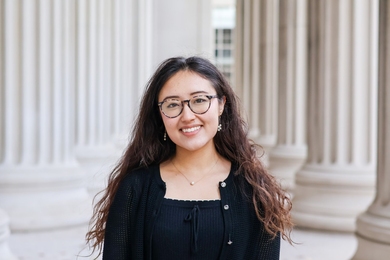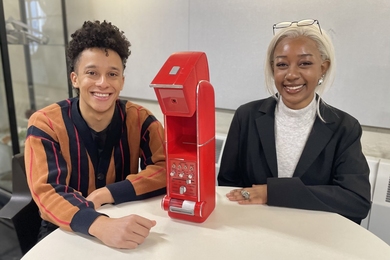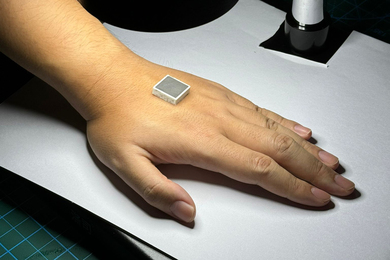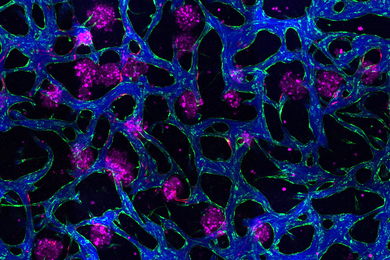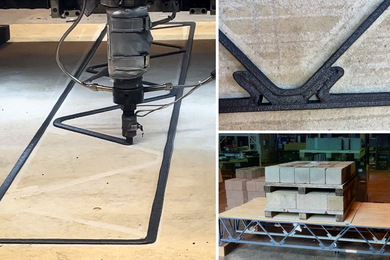Boris Magasanik, a pioneer in cellular biology who helped shape the development of the Department of Biology, has been honored by MIT with the establishment of a professorship named for him. Dr. Magasanik, who joined MIT in 1960, is the Jacques Monod Professor of Microbiology emeritus and a senior lecturer in the department.
Professor Mary Lou Pardue, an internationally known geneticist and cell biologist and a departmental colleague since 1972, has been appointed the first Boris Magasanik Professor in Biology.
The announcement of the new chair and its first holder was made by Dean of Science Robert J. Birgeneau.
"Professor Magasanik, in more than four decades of carefully conceived and delicately executed cellular research, helped illuminate the complex genetic and biochemical mechanisms that control cell life and function," Dean Birgeneau said. "He also played a major role in forging what is now one of the world's foremost departments of biology.
"Professor Pardue has made distinguished contributions to MIT in both education and research for more than two decades. In particular, a number of people from her laboratory have gone on to brilliant careers of their own in biology. The linking of these two great figures, Boris Magasanik and Mary Lou Pardue, is most appropriate," Dean Birgeneau said.
Professor Pardue's two major fields of research have been cellular and molecular biology. She specializes in studies of chromosome structure and the mechanisms by which genes carry out functions and affect development of higher organisms. Her doctoral research was devoted to the development of a technique-now called in-situ hybridization-which allowed biologists, for the first time, to map specific DNA sequences on chromosomes and within interphase nuclei. It has become a standard tool of molecular biology.
Dr. Pardue has been especially interested in DNA sequences that make it possible for chromosomes to serve as efficient and accurate carriers of genes from one cell generation to the next. These sequences include those making up special structures called telomeres that form and protect the ends of the chromosomes. Her group has found that the fruit fly, Drosophila, the model organism for many discoveries in genetics and developmental biology, maintains the ends of its chromosomes by means of special transposable elements (telomeric transposons) that transpose only to the ends of the chromosomes and therefore prevent shortening that could lead to loss of genes. Drosophila is the first organism found to use this method of telomere maintenance. Until now, transposable elements have been considered "selfish" or parasitic. The Drosophila telomere elements are the first transposable elements that have a bona fide role in the cell. Because these telomere transposons have features characteristic of transposable elements and viruses, Professor Pardue speculates that telomere elements, and perhaps other yet to be discovered chromosomal elements, may be evolutionary precursors of viruses.
A second focus of her research has been regulation of gene expression. Her laboratory was the first to identify the dramatic change in cellular RNA that is brought about by heat shock. To extend these studies, her group developed the first Drosophila in vitro RNA translation system and used it to study the regulation of protein synthesis that occurs during heat shock. Her studies of the heat shock response have also led to the discovery of what appears to be a new class of regulatory RNAs which, surprisingly, never leave the nucleus.
Professor Pardue holds the BS degree in biology (1955) from the College of William and Mary, the MS (1959) in radiation biology from the University of Tennessee at Knoxville, and the PhD (1970) in biology from Yale University.
Among the boards and review panels she has served on are the National Advisory General Medical Sciences Council of the National Institutes of Health, 1984-88; the National Research Council's Board on Biology (1989-1995), the American Cancer Society's Advisory Committee on Nucleic Acids and Protein Synthesis (1990-93), the Howard Hughes Medical Advisory Board (1994-present), and Associated Universities, Inc., Board of Trustees (1995-present).
Professor Pardue has been a member of the National Academy of Sciences since 1983, a Fellow of the American Association for the Advancement of Science since 1978, and a Fellow of the American Academy of Arts and Sciences since 1985. From 1991-94 she chaired the NAS Section on Genetics and has been an NAS council member since 1995. She has been a council member of the American Academy of Arts and Sciences since 1992. She has been president of the American Society of Cell Biology (1985-86) and the Genetics Society of America (1982-83).
A version of this article appeared in MIT Tech Talk on November 8, 1995.
